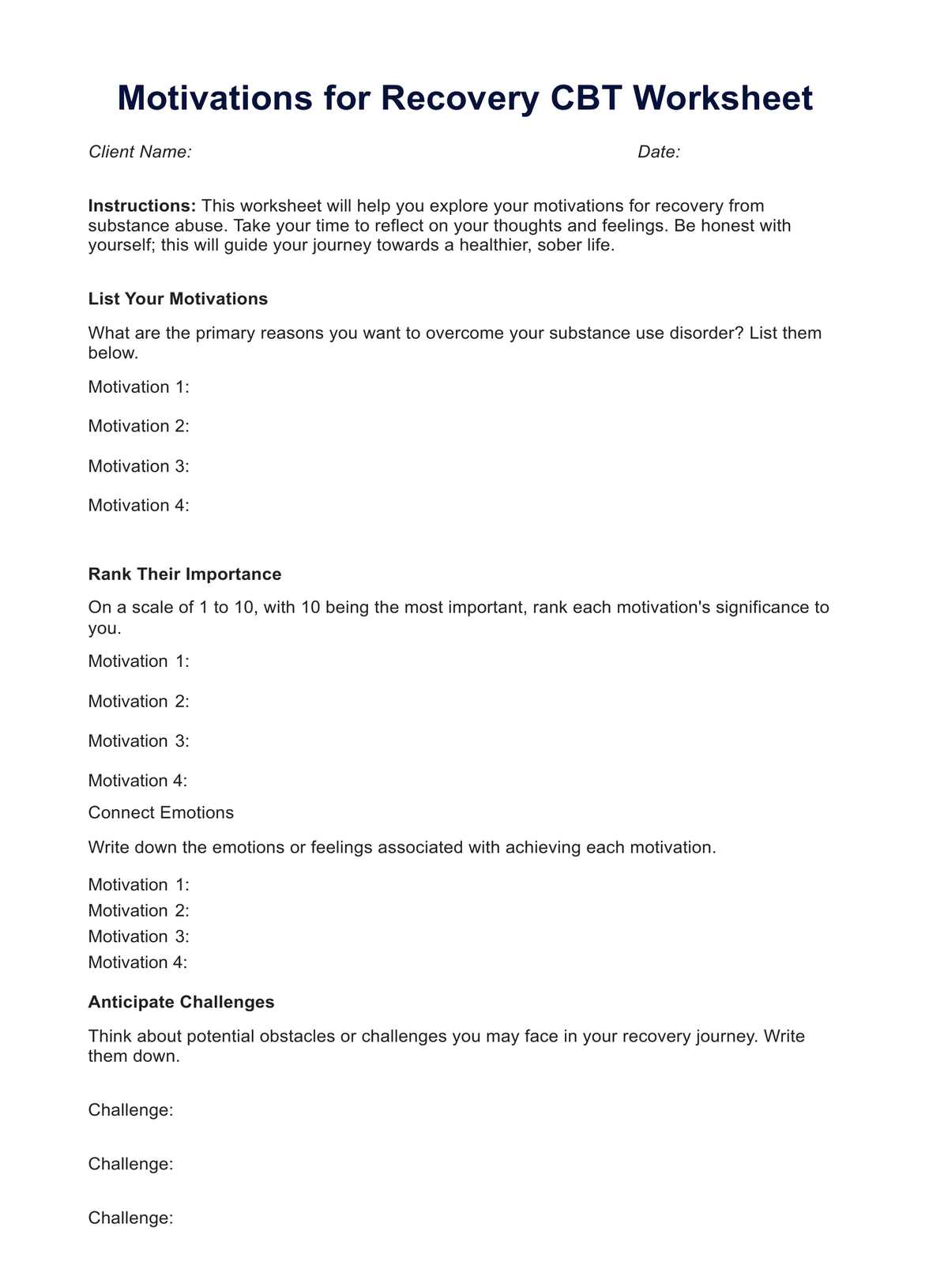The time to complete the worksheet varies but typically ranges from 30 minutes to an hour, depending on the depth of reflection and discussion.

Motivations for Recovery CBT Worksheet
Discover the power of the Motivations for Recovery CBT Worksheet—a valuable tool for enhancing commitment to sobriety.
Use Template
Motivations for Recovery CBT Worksheet Template
Commonly asked questions
This worksheet aids in identifying motivations for sobriety, connecting emotions to those motivations, and creating actionable plans to support recovery.
Healthcare professionals, therapists, counselors, individuals in recovery, and support groups can all use this worksheet to explore and reinforce motivations for recovery.
EHR and practice management software
Get started for free
*No credit card required
Free
$0/usd
Unlimited clients
Telehealth
1GB of storage
Client portal text
Automated billing and online payments











